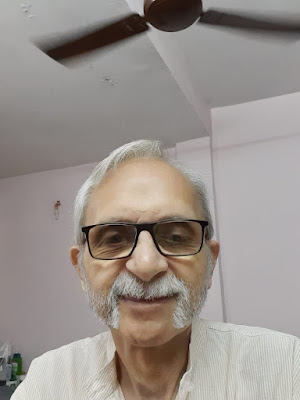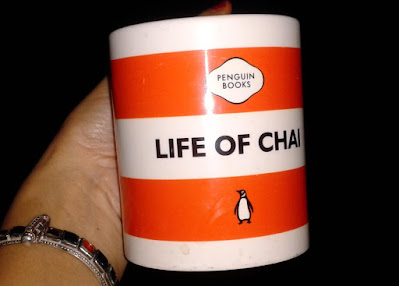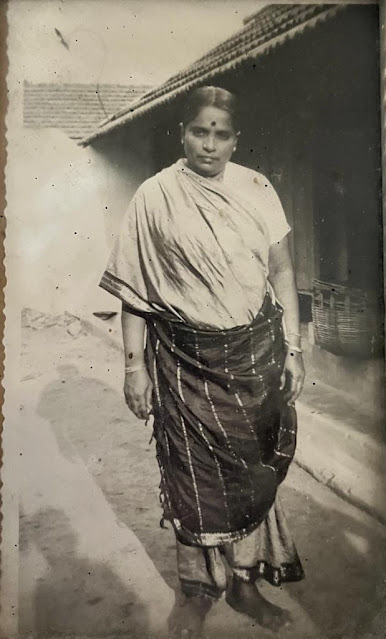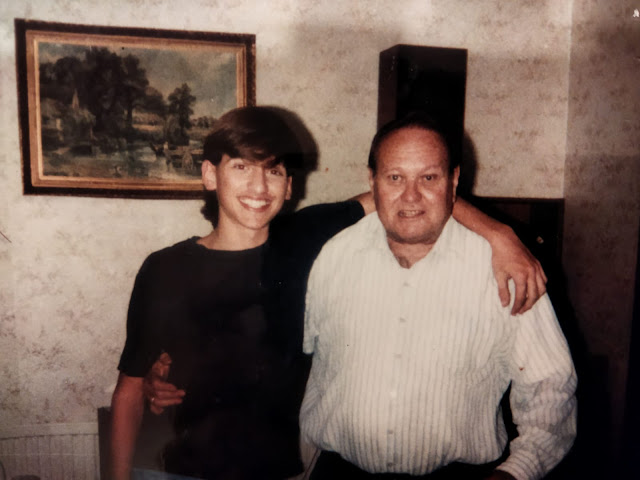Hello again, dear friends! The birthday party continues with another new writer joining in! Please welcome Rajan Mani to Indian Chai Stories. Thank you, Rajan, for sharing your thoughts with all of us. Goes to show there’s a world of stories in every cup of tea! Cheers! - Gowri
by Rajan Mani
At the outset, this title sticks out like a sore thumb, doesn’t it? After all, what is coffee doing in a collection of tales full of chai ka bagan and chai? My defence is that it is an attempt to give a different perspective.I grew up in Delhi, but in a pakka TamBram family – so it was pretty much in line that coffee would be the beverage that would kick-start the day. Not just coffee, but filter kaapi made from roasting coffee seeds just so, then powdering the seeds in a contraption called a coffee grinder and then creating a decoction which when mixed with milk and sugar in my mother’s own formula would generate a heady elixir.
My parents belonged to an era where instant coffee was just entering India and Nescafe and the like were not just recognized by them. In fact there is a story in our extended family circle, probably apocryphal, that a prospective marriage alliance got grounded because one of the parties served (hold your breath!) cups of instant coffee rather than filter coffee. During my graduation, my love affair with coffee continued, but a two year stint in Jamshedpur for my PG in management introduced me to tea and varieties of it. We had a small tea stall just outside the hostel and Fazal, the guy who ran it spiced up especially our winter afternoons with his elaichi chai and adhrak chai. It definitely made me take a relook at chai.
Corporate life gave me a totally new view of how tea divided and how it categorized! My first assignment was in a company with British partnership which made bicycles and my stint at the factory helped me understand how the cup in which it was served made a difference. Workers on the shopfloor would be given their cuppa in small steel tumblers, their supervisors would get the same brew in mugs with handles, officers and managers would get cups on saucers with their tea and for the top brass, tea would be served by a liveried waiter with the ingredients separate and mixed to taste in front of each big man.
The stint in sales which followed was a different learning experience and I found that tea was a more palatable drink than the ‘Nescoffee’ latte which many dealer friends wanted to give me, because ‘aap South se hain’! Our biggest dealer in Pune, I found, had a pecking order using tea for the sales people who called on him.
The starting level was chai – ordinary tea from the neighbouring tea stall in the stall’s cups, not particularly clean and maybe even with a crack or two. People who were more useful to Popatbhai would get ‘chai, special cup me’ – he had given a set of his crockery to the tea shop! The next promotion was to ‘special chai, special cup me’ – special chai meant more sugar and some spices in the brew. The ultimate level was Popatlal Seth calling someone home for a sumptuous Marwari meal!
I have realized from all this experience that tea is not just tea. There is a huge difference between tea from different locations and between dust tea, leaf tea and tea from tea bags, but though I have a prominent sweet tooth, I draw a line at the ‘khadi chamach’ chai of some areas in Maharashtra. The brew is so thick and has so much sugar in it that a spoon can literally stand vertically in the cup. It just isn’t, well, my cup of tea!
Starting from being just a kaapi drinker, I am now equally comfortable with either tea or coffee though I must confess that my day starts only when filter kaapi courses through my veins! For me, as somebody said, it is still ‘Coffee is a beverage, but kaapi is an emotion’.
Meet the writer:
Rajan Mani is a Dilli wala Madrasi who is now settled in Chennai. His management degree took him to a sales career, but halfway through, he got off the bus and became a Prof in a B-school. He uses his retirement usefully by pretending to help his wife, whistling old Hindi songs and composing bad limericks.
Rajan Mani
Is this your first visit here? Welcome to Indian Chai Stories! Do you have a chai story of your own to share? Send it to me here, please : indianchaistories@gmail.com.
My name is Gowri Mohanakrishnan and I'm a tea planter's wife. I started this blog in 2018 because one of the things that I wouldn't want us to lose in a fast changing world is the tea story - a story always told with great seriousness, no matter how funny - always true (always) - maybe a tall tale, maybe long, short, impossible, scary, funny or exciting but never dull. You will find yourself transported to another world!
This is the link to all the stories on this blog: https://teastorytellers.blogspot.com/ Be sure to add it to your list of favourites! Happy reading!! Cheers to the spirit of Indian tea!













%20Dr%20Spadoni,%20Dr%20Rubagotti,%20Sarita%20Dasgupta.jpg)
%20Mr%20Adya%20&%20Mr%20Pyne%20of%20FREED,%20Sarita,%20Dr%20Rubagotti,%20Dr%20Spadoni.jpg)






